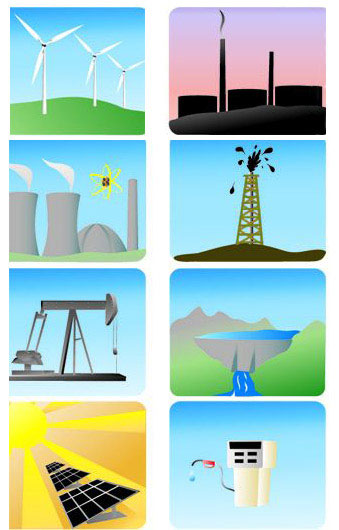Energy debate
Energy transition is one of the most important societal issues. But what is a realistic scenario, given that energy demand is permanently increasing? How can the existing infrastructure be replaced by a sustainable one, what investments are needed and which policies required? Professor Niek Lopes Cardozo (TU/e) and MP/TU alumnus Diederik Samsom (PvdA) will discuss the above topics at a KNAW event next Monday in the Trippenhuis, Amsterdam.&
nbsp;Register at bit.ly/knaw-debat
Energy monitor
Dutch universities have agreed to improve their energy efficiency by two percent per year. By 2020 the fossil fuel use per m2 should have been reduced by 30 percent compared to 2005 levels. A special website, initiated by the Delft Energy Initiative and Facility Management & Real Estate, shows the historic energy use for each building. Surprisingly, not BK-city, but rather Sports Centre (650 kWh/m2 year), is the largest energy user on campus. www.energymonitor.tudelft.nl
God particle
Nobel prize winning physicist, Professor Gerard ‘t Hooft, will give a lecture about the significance of discovering the Higgs boson. Popularly known as the ‘God Particle’, this tiny little thing, which scientists at Cern are now looking for assiduously, is supposedly responsible for giving other particles their masses. The lecture is organized by VvTP (the Students Association for Applied Physics) and Studium Generale.
Thursday February 9, 16:00, TU Delft Aula congress centre, Mekelweg 5. Delft. Free entry
Gas strategies
At the World Future Energy Summit in Abu Dhabi, Dr Ruud Weijermars, a TU Delft gas researcher and director of the unconventional gas research programme UGRI, launched a new journal focusing on energy, together with Elsevier senior publisher Henri van Dorssen. The journal Energy Strategy Reviews will publish both peer-reviewed academic publications and analyses on energy strategy. www.journals.elsevier.com/energy-strategy-reviews
In about six months time the Dutch natural gas infrastructure and transportation company Gasunie and trading company GasTerra will start pumping liquefied natural gas (LNG) from the dedicated terminal at the Maasvlakte into the Dutch gas net.
About 80 companies, including Shell, AkzoNobel, DSM and Corus, which are connected to this ‘high caloric gas pipeline infrastructure’ will be the first to be served. These companies are worried however that the new gas will negatively affect their industrial activities. They claim adapting their burners to the purer and more energetic import gas will cost them millions of euros.
Energy market expert, Dr. Theo Fens (Technology Policy and Management), understands industry’s concerns, yet he believes that for industry nothing really new is happening in fact. “In order to keep the caloric value within certain limits, gas network companies are already diluting some of the gas with nitrogen. But still, companies always have to adapt their burners to gasses of different quality. If at some moment the gas they receive exceeds the quality margins that they agreed upon, then gas providers will just have to negotiate new prices for the gas. It’s a free market.”
Combustion expert, Professor Dirk Roekaerts (faculty 3mE), adds that most industrial companies are used to continually adapting their combustion processes to abide by environmental regulations that become more stringent each year. “This is just another thing to add to their list.”
The new LNG gas might present more of a problem for the millions of households on the omnipresent Dutch gas net, however. “Someone has been sleeping,” reacts Dr Michiel Makkee (Applied Sciences). Dr Makkee is the proud owner of a 6,000 euros Boretti cooker that he hopes will last a lifetime. “They haven’t paid any attention to the differences between the Dutch gas and the imported LNG.”
The main differences are the approximately 15 percent nitrogen in Dutch natural gas and the 100 percent purity of the imported LNG. The problem is that all burners have been tuned to supply a certain amount of air to Dutch gas, containing 15 percent inert nitrogen. Replace the natural gas with LNG and the air supply is deficient by 15 percent, resulting in incomplete burning, production of carbon monoxide and soot.
The simplest solution is to dilute the LNG at the terminal with nitrogen or CO2. What makes this complex however is the huge scale of the operation. Nitrogen can be harvested from the air by cooling it to –196 °C. A nitrogen-producing factory of the scale needed would cost “hundreds of millions” of euros and would use huge amounts of energy. The production would even influence substantially the national CO2 budget. This means that environmental groups protesting against such a factory would stand a good chance of – at least – delaying the construction.
Thus, Dr Makkee expects that the slight chemical difference in gas composition will cost the Dutch hundreds of millions of euros, either in taxes, future gas bills or conversion costs.



Comments are closed.